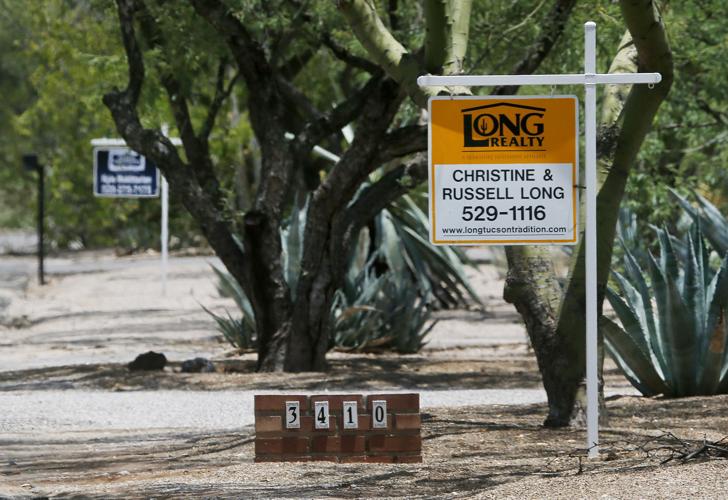Tucson is one of the most economically distressed large cities in the country, a new report says, but if it hopes to recover from the Great Recession it should focus on startup development.
While Tucson’s No. 9 ranking in the Distressed Communities Index published by Economic Innovation Group may not be a surprise to many, Phoenix fares only slightly better, placing at No. 11, the bipartisan think tank and advocacy group based in Washington, D.C. reported.
In Tucson, 39 percent of the population is said to be living in a precarious economic situation, based on data obtained from the Census Bureau’s American Community Survey. In Phoenix that number is 35 percent.
“Phoenix and Tucson are still two of the worst hit cities that are still coming out of the recession,” said Steve Glickman, executive director at EIG. “In our view they are desperately in need of more private-sector investment and entrepreneurship to grow their way out of the economic crisis.”
The index uses seven metrics to determine economic health, including educational attainment, housing vacancy rate, unemployment, poverty level and income.
Arizona as a whole is one of the most distressed states, ranking sixth in a top 10 led by Nevada. The state is also home to four of the top five most distressed ZIP codes in the nation, in Chambers, Kings Canyon, Lukachukai and Kaibito — all of them in Native American reservations.
“We attribute a significant chunk of what’s happening in the Southwest to the housing market, how slow it has been to recover and the impact it has not only on people’s finances but also their financial freedom,” Glickman said.
The housing market is slowly improving in Tucson, but the population growth that will drive the recovery in Arizona is hampered by economic conditions around the country, said George Hammond, an economist at the UA’s Eller College of Management.
“Slow income growth and a number of households that are still underwater on their mortgages (are) really holding back residential mobility,” he said. “There just aren’t that many people moving around the country now as there were before the Great Recession.”
An unemployment rate that’s higher than the national average and continued slack in the labor market, which limits wage growth, also contribute to a slow recovery, Hammond said.
Startup solutions
Though the stats about Arizona are fairly bleak in some respects, there are positive signs within the state, said John Lettieri, senior director for policy and strategy at EIG.
“There is some policy innovation that’s being driven by an understanding of being better prepared for that next economic downturn,” he said.
Groups such as the Greater Phoenix Economic Development Group and Startup Tucson are examples of initiatives attracting startups and building a support system for them.
“That is the only long-term way out of economic distress. It’s the only long-term way to build a stable job space,” Lettieri said.
Although most startups fail in the long term, the ones that succeeded are vital to the overall economy, particularly to jobs, wage growth, productivity and innovation, officials said.
“Small businesses don’t drive the growth of the economy, they reflect the growth of an economy,” said Justin Williams, CEO at Startup Tucson. “One hundred percent of all net new jobs created in the last 30 years come from high-growth startups.”
Programs at Startup Tucson aren’t there to simply help a company grow, Williams said, they are also designed to attract talented entrepreneurs, educate young people and help people who don’t yet have a company to think more like entrepreneurs.
Tucson has some fundamental ingredients that make for a good innovation ecosystem, Williams said. He pointed to Austin and its similar regional politics, university community and eclectic culture.
“We’re not going to become Austin, we’re going to become Tucson, but there are models that we can learn from. We don’t have to go to Silicon Valley to learn how to do this,” he said.
A role for government
Bringing real growth to distressed communities will require coordination from federal, state and local governments and from the private sector in a new way, said EIG’s Glickman
“We have to work with Congress and governments at the state and local level to try and find creative ways to have the private sector incentivized,” he said.
Over the last few years, Tucson has brought economic development back under city control, helped companies with exports and imports, and worked to entice business, said Mayor Jonathan Rothschild.
“We’ve created an incentive package with 21 different incentives that businesses can take advantage of,” he said. “Some of them are specific to certain parts of the city, but some, like the primary jobs incentive, helped us land both Comcast and HomeGoods recently.”
As for startups, Rothschild said helping create groups such as Startup Tucson and the Arizona Center for Innovation is already paying off, but that it’s only the first step to long-term success.
“You don’t get named (by Entrepreneur Magazine) one of the top five cities for young entrepreneurs without having entrepreneurs in place,” he said.
“But the way to keep it going is we have to continue the investment, continue the outreach work and look at ways to attract these capital investors into our community.”
It is that kind philosophy from elected officials and civic leaders that is needed to support startup growth and pull the city out of its economic distress, Startup Tucson’s Williams said.
“It’s a new way of thinking, a new approach that is really important in the long run for our entire region, to find a way to make this a top priority for economic development,” he said.







